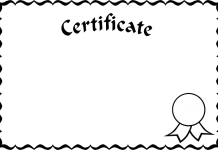
A sales operations manager’s mission is to ensure that the sales team runs as productively and as efficiently as possible.
The lion’s share of their tasks lies in optimizing the company’s CRM to build a clear and successful communication between the team members and customers. Their role also implies data tracking and analysis, setting goals, building sales forecasts, generating reports, creating, adapting, and managing a team’s technology stack, and other responsibilities to provide stakeholders with valid recommendations and insights to boost performance.
On their way to success, regardless of qualifications and knowledge, sales operations managers face some serious challenges: sales representatives are drowning in multiple administration tasks, new hires overload managers with additional duties, while the security measures that worked perfectly for a smaller sales team might not be so effective for a bigger team.
Now we will share with you the main challenges that sales operations managers face and give you some tips on how to overcome them.
Issues with building a decent tech stack
A deep understanding of technologies and having all the necessary skills needed to implement them is one of the crucial responsibilities in a sales operations manager job and the guarantee of success. These guys should be passionate about new technologies, constantly monitoring new solutions and analyzing how they can help to simplify the company’s processes and make them more efficient.
Each software solution that you add to the company’s technology stack should play a clearly defined role in complementing the consistent and effective sales process. You should always remember that it will take time to teach employees how to use it, as well as the time it will take to use the software on a day-to-day basis when assessing its effectiveness and value in achieving company goals.
It is important to understand that quality is much more important than quantity, and, more often than not, it is better to choose a single advanced platform that offers a wide functionality that covers all the team’s needs, than to constantly experiment with dozens of new software tools with limited functionality.
Some cutting-edge solutions combine advanced automation, forecasting, analytics (and many more!) features to help your team achieve success faster and guaranteed. One of such tools is Revenue Grid, an award-winning revenue operations and intelligence platform that offers multiple features such as deal guidance, pipeline visibility, sales forecasting, revenue signals, sales sequences, team analytics, and CRM data auto-capture to help you improve the performance of the sales team and shift your CRM from the “view mode” to the “do mode”.
Routine administrative tasks that won’t allow your employees to keep their CRM updated
This is a fairly widespread problem: due to the huge number of repetitive administrative tasks, team members simply do not have time to do some important things like updating their CRM in time. Moreover, the more complex the process and the software they use, the larger the problem can become.
Adopting the process should not only make it easier for employees to complete their daily tasks but also help them close maximum deals faster. For that, you will need to opt for a CRM system that is efficient, simple, and straightforward, most suitable for the salespeople to work with, and seamlessly integrates with the other tools your reps use every day.
If it simplifies their duties, helps them focus on the right actions, and saves them from overloading themselves with routine tasks, then you can be sure that they will be able to update it regularly and accurately.
It’s difficult for you to get a clear view of the team’s performance
To successfully manage a team’s performance, you need accurate and effective performance tracking. Only if you have a perfect understanding of how the team works, you will be able to set goals that they can achieve and succeed.
An easily accessible, clear, and understandable overview of your team’s performance will help you a lot. You can use modern, advanced tools that will let you use customizable dashboards to analyze the performance of each employee, set realistic goals for each of them, adjust them in real-time, and motivate your people.
Once you start identifying the problems that reps are facing on time, you can customize the goals they can achieve.
You find it difficult to make reps use the sales process consistently
For example, let’s say you’ve developed a winning sales process that focuses on streamlining sales activities and improving your sales representatives’ productivity. Now, you just need to successfully implement it.
If you fail to do that, salespeople will get confused in their tasks, and they can even start losing deals. But, the larger the organization, the more difficult it is to do that.
To succeed, you need the following:
- a consistent sales process that your employees trust and believe in;
- advanced tools that will help to effectively support it.
Remember that the process itself should be simple, logical, extremely clear to team members, and help them close more deals faster. Then, you will not have any difficulties with adopting it.
Problems with getting accurate forecasts
The only fact that you understand that an accurate sales forecast is extremely important is not a guarantee of getting your forecasts accurate! But if they aren’t, it won’t allow your teams to achieve their goals.
Start by building forecasts and optimizing revenue with confidence; for this, you need to be able to break the forecast down by team and by individual sales reps.



